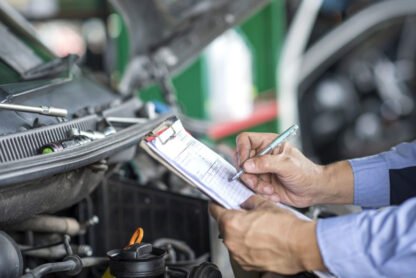You may suppose your automobile’s gas injector system can run for all time without a hitch, in any case, present day automobiles are built hard. But even the high-quality machines wear out over the years, and gas injectors are not any exception. So, when’s the right time to change them out for clean ones? Well, it relies upon. While trendy guidelines endorse changing injectors every 50,000 to a 100,000 miles, actual-international factors can throw that window off balance. If you’re clocking excessive monthly mileage or riding in severe situations, you may need to update those injectors faster.
Why Injector Cleaning Matters
Modern fuel injectors are sturdier than their older counterparts, but maintaining them in pinnacle form isn’t only a reminder of success. Regular cleansing and maintenance can stretch their lifespan past the 100,000-mile mark. However, ignoring the caution signs? Well, that’s a recipe for sluggish performance, reduced fuel economy, and eventually, pricey maintenance. To maintain peak engine health, scheduling an Injector Cleaning Service is beneficial to get things clean.
What Are the Signs of a Failing Fuel Injector?
When gasoline injectors cross horrifically, your car gains it quietly. It’ll allow you to realize, occasionally subtly and once in a while with a full-blown tantrum. Keep an ear out for these telltale symptoms:
1. Engine Light Flashing
That dreaded check engine light isn’t there for decoration. When injectors misbehave, both from clogging or failure, they can experience sensors, triggering the caution light. Sure, the mild ought to suggest many things, but injectors are frequently the culprits.
2. Engine Misfires or Hesitation
If your automobile jerks or stumbles whilst you press the accelerator, it’s not simply being moody. Clogged injectors can cause misfires, in particular whilst you need the engine to carry out below strain, like for the duration of brief acceleration or hill climbs.
3. Rough Idling and Increased Stalling
Ever notice your engine vibrating oddly or struggling to preserve a regular idle at a stoplight? That’s a purple flag. Injectors that aren’t firing effectively disrupt the fuel-air blend, leaving your engine struggling to breathe.
4. Poor Fuel Economy
If your car drinks gasoline and adores it at an all-you-can-eat buffet, bad injectors are probably accountable. On the flip facet, injectors handing over too little gas also can throw off your mileage game. Either way, your pockets feel the pain.
5. Bad Odor or Fuel Leaks
A sturdy gasoline smell or seen gasoline pooling in the engine bay? Yikes. That may want to imply your injectors are leaking, something that’s both risky and a surefire sign they want changing.
6. Hard Starts and Performance Issues
When gasoline injectors aren’t working right, getting your car to start on a cold morning can sense like wrestling with a stubborn mule. And despite the fact that it starts, bad acceleration and lack of electricity are commonplace complaints.
7. Failed Emissions Test
Your vehicle’s exhaust system tells a tale, if it’s walking too rich or too lean, it may flunk emissions tests. This would possibly factor to injectors that aren’t doing their job properly, sending either too much or too little gas to the engine.
Should You Clean or Replace Your Fuel Injectors?
Not every injector has a problem when it is time for a logo-new set. Sometimes, a deep clean can get things again heading in the right direction, but there are situations in which cleaning is only a band-aid on a larger problem. So, how do you already know whether to clean or replace?
1. How Old Are the Injectors?
If your injectors had been across the block some instances, say, over a 100,000 miles, they’re likely nearing the cease in their lifespan. At that point, cleaning may additionally come up with some temporary alleviation, however it won’t deliver them lower back to their former glory.
2. Severity of Clogging
Moderate buildup on the injectors may be wiped clean off with professional services, restoring performance. But if the injectors are closely clogged or broken internally, cleansing assist, and in replacement is the only real option.
3. Maintenance Habits and Driving Conditions
Cars pushed in dusty environments or on ethanol-wealthy fuel often have injectors that clog faster. Regular protection can help, but in a few instances, frequent injector cleaning might not be sufficient, alternative will become inevitable.
When Is the Best Time to Replace Your Fuel Injectors?
If you’re an aggressive motive force or often drive in intense temperatures, the ones injectors will probably put on out faster. That stated, staying on top of recurring preservation, like fuel machine cleaning and everyday diagnostics, can extend the lifespan of your injectors.
An accurate rule of thumb is to have your injectors checked every three years or 70,000 kilometers . If your mechanic tells you about signs and symptoms of clogging or wear, they are able to recommend whether a cleaning will suffice or if a substitute is important.








